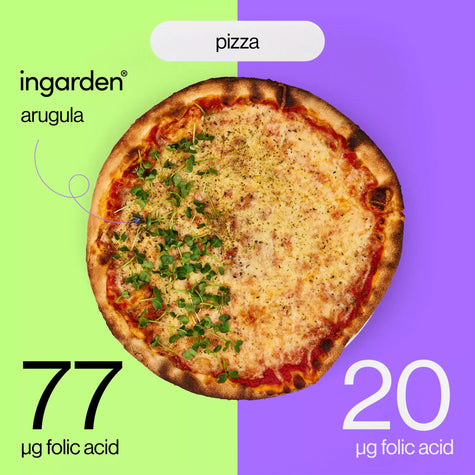Have you ever found yourself frustrated and disheartened by the lack of results from your dieting efforts? You're not alone. At any given time, more than a third of Americans are on a specific diet, primarily for weight loss. However, the disappointing truth is that most diets prove ineffective in the long run. Even when diligently followed, weight lost tends to be regained within a few months.In this blog post, we will dive deep into the frustrating truth behind why diets often don't work as expected. By uncovering the underlying factors and exploring sustainable alternatives, we aim to empower you with the knowledge and insights to break free from the cycle of failed diet attempts. Get ready to challenge conventional notions and discover a new perspective on achieving lasting weight loss success.
The Myth of Quick Fixes & Unsustainable Approaches
In a world driven by instant gratification, it's no wonder that quick-fix diets have gained popularity. Promising rapid weight loss and miraculous transformations, these diets often appear enticing. However, they rarely live up to their lofty claims. The truth is, sustainable and lasting weight loss doesn't happen overnight.
Quick-fix diets typically rely on severe calorie restriction or the elimination of entire food groups. While these diets may yield initial weight loss, they tend to be difficult to maintain over time.Despite initial weight loss, about 95% of people regain the weight within 1 to 5 years due to the temporary nature of diets. Restrictive diets may lead to a cycle of overeating or binge-eating, and they can also slow down metabolism, making weight loss more difficult. Restricting certain food groups or severely limiting calorie intake can lead to feelings of deprivation and ultimately backfire. The more we feel deprived, the more likely we are to give in to cravings and overindulge, leading to a cycle of guilt and frustration.
Moreover, restrictive diets can have negative effects on our physical and mental well-being. They may lack essential nutrients, depriving our bodies of vital vitamins, minerals, and macronutrients needed for optimal health. This can result in decreased energy levels, impaired immune function, and nutrient deficiencies. Additionally, dieting and compulsive weighing can increase the likelihood of developing eating disorders. People who diet are significantly more prone to developing these disorders compared to those who don't diet.
A recent systematic review and meta-analysis of popular diets revealed that while initial improvements in weight, blood pressure, and cholesterol were observed at the six-month mark, these benefits dwindled by the 12-month mark. Whether it's low-carbohydrate, low-fat, or moderate-macronutrient diets, the regaining of lost weight becomes a common trend.
It becomes evident that adherence and long-term commitment are crucial for sustained success. Rather than fixating on specific diet types, the focus should be on choosing a plan that includes enjoyable foods, facilitating adherence. Embracing a flexible approach allows for enjoyment of a wide variety of foods while still meeting our nutritional needs. It involves listening to our bodies' hunger and fullness cues, practicing mindful eating, and finding a balance between indulgence and nourishment.It's important to recognize that factors beyond diet, such as regular physical activity, exercise, and sufficient sleep, also contribute to maintaining a healthy weight. The Mediterranean diet, with its well-studied effectiveness and lasting impact on LDL cholesterol levels, stands out as a favorable option.
Next, we will delve into the biological factors that contribute to the challenges of dieting. Stay tuned to unravel the complex relationship between our bodies and weight loss.
Biological Factors at Play
When it comes to weight loss, our bodies are complex systems governed by a myriad of biological factors. Understanding these factors can shed light on why diets often fall short of their intended outcomes.
One key factor is our body's natural resistance to drastic calorie restriction. When we drastically reduce our calorie intake, our bodies perceive it as a threat and enter a state of self-preservation. Metabolic processes slow down, making it more difficult to burn stored fat. This adaptive response, known as metabolic adaptation, can lead to weight loss plateaus and hinder further progress.
Additionally, genetics play a significant role in our body's response to weight loss efforts. Some individuals may have a genetic predisposition that makes it harder for them to shed excess pounds, while others may have a more favorable genetic makeup for weight loss. These genetic differences can influence factors such as metabolism, fat storage, and appetite regulation.
Many individuals find themselves trapped in a cycle of restrictive dieting followed by dysfunctional eating patterns, ultimately regaining the weight they initially lost. The set point theory suggests that our bodies have a predetermined weight range regulated by genetics and hormones, making it challenging to sustain weight loss achieved through strict diets. However, an alternative approach called intuitive eating is gaining recognition. It encourages individuals to listen to their body's internal cues, granting unconditional permission to eat and prioritizing physical nourishment over emotional eating.
It's important to recognize that weight loss is not solely about willpower or discipline. Biological factors can create barriers that make it challenging to achieve desired results through traditional dieting approaches alone. However, understanding these factors allows us to explore alternative strategies that work with our bodies rather than against them.
In the next section, we will delve into the psychological and behavioral challenges that can hinder dieting success. By addressing these aspects, we can develop a more comprehensive approach to achieving sustainable weight loss. Stay tuned for valuable insights and practical tips.
Psychological and Behavioral Challenges
While biological factors play a significant role, the psychological and behavioral aspects of weight loss should not be overlooked. Our relationship with food, emotions, and habits can greatly impact the success or failure of our dieting endeavors.
Emotional eating is a common challenge faced by many individuals. During times of stress, sadness, or boredom, turning to food for comfort becomes a coping mechanism. Unfortunately, these emotional triggers can derail even the most well-intentioned diet plans. Recognizing and addressing emotional eating patterns is crucial for breaking the cycle and establishing healthier coping mechanisms. Moreover, research shows a documented connection between childhood trauma and obesity. Therapy may be necessary for individuals with a history of trauma to address emotional overeating and establish healthier self-care patterns.
Self-sabotage is another psychological hurdle that can sabotage dieting efforts. It often manifests as negative self-talk, feelings of unworthiness, or a fear of success. These self-defeating thoughts and behaviors can undermine our motivation and adherence to a healthy eating plan. Building self-awareness and cultivating a positive mindset are vital for overcoming self-sabotage and staying on track towards our goals.
Furthermore, the restrictive nature of many diets can lead to a "deprivation mindset." When we perceive certain foods as off-limits, it triggers a psychological response that intensifies cravings and the desire to indulge. This can eventually result in binge-eating or a sense of failure, further derailing our progress. Adopting a more balanced and flexible approach to eating can help alleviate this mindset and foster a healthier relationship with food.
In the next section, we will explore the importance of individualization in achieving successful and sustainable weight loss. Every individual is unique, and a one-size-fits-all approach rarely yields the desired results. Stay tuned as we delve into the importance of personalized approaches tailored to individual needs and preferences.
Building a Sustainable Approach
Achieving sustainable weight loss involves adopting a mindset of long-term commitment and making gradual changes that can be maintained over time. Here are some practical tips and strategies for building a sustainable approach:
- Mindful Eating: Pay attention to your body's hunger and fullness cues. Slow down and savor each bite, fully engaging in the eating experience. This helps prevent overeating and promotes a healthier relationship with food.
- Gradual Changes: Instead of making drastic and unsustainable changes overnight, focus on implementing small, manageable changes. This could include incorporating more fruits and vegetables into your meals, opting for whole grains, or reducing portion sizes.
- Balanced Nutrition: Strive for a well-balanced diet that includes a variety of nutrient-dense foods. Fill your plate with lean proteins, whole grains, fruits, vegetables, and healthy fats. Aim for moderation rather than deprivation.
- Regular Physical Activity: Find enjoyable forms of exercise that suit your preferences and incorporate them into your routine. Whether it's walking, dancing, or practicing yoga, staying active is crucial for overall health and weight management.
- Support System: Surround yourself with a supportive network of friends, family, or like-minded individuals who share similar goals. They can provide encouragement, accountability, and helpful advice along your weight loss journey.
- Stress Management: Implement stress-reducing techniques such as meditation, deep breathing exercises, or engaging in activities you enjoy. High levels of stress can lead to emotional eating and hinder weight loss progress.
- Adequate Sleep: Prioritize getting enough quality sleep each night. Lack of sleep can disrupt hunger-regulating hormones and increase cravings, making it more challenging to stick to a healthy eating plan.
- Celebrate Non-Scale Victories: Shift your focus from solely relying on the number on the scale. Celebrate non-scale victories such as increased energy, improved mood, or clothing fitting better. These are indicators of positive changes happening within your body.
Remember, building a sustainable approach is about finding what works best for you and aligning it with your individual needs and preferences. Be aware of companies and individuals tha take advantage of desperate individuals by promoting "magic" weight-loss products that often have little to no effectiveness. There is no "magic pill" or "wonder powder" that will miraculously turn you skinny overnight. Relying on healthy eating and exercise is the key to real and sustainable weight loss.
In the next section, we will discuss the importance of seeking support and professional guidance on your weight loss journey. Stay tuned for valuable insights and resources to help you along the way.
Seeking Support and Professional Guidance
Embarking on a weight loss journey can be challenging, and having the right support and professional guidance can make a significant difference in your success. Here are some reasons why seeking support is crucial:
- Accountability: Having a support system can provide accountability and help keep you motivated. Sharing your goals, progress, and challenges with others who understand and support your journey can keep you on track.
- Emotional Support: Weight loss can evoke a range of emotions, including frustration, self-doubt, and discouragement. Connecting with others who have experienced similar struggles can provide emotional support, encouragement, and the reassurance that you're not alone.
- Practical Advice: Professionals such as registered dietitians and nutritionists are trained to provide evidence-based guidance tailored to your individual needs. They can assess your current habits, create personalized meal plans, and offer practical strategies to overcome obstacles and achieve your weight loss goals.
- Addressing Underlying Issues: Sometimes, there are underlying factors contributing to weight gain or difficulties in losing weight, such as hormonal imbalances or emotional triggers. Seeking professional guidance can help identify and address these factors, leading to more effective and sustainable weight loss.
- Education and Resources: Professionals can provide valuable education on nutrition, portion control, healthy cooking techniques, and mindful eating. They can also recommend reliable resources and tools to support your journey.
Whether you choose to seek support from friends, join online communities, or work with professionals, remember that you don't have to navigate your weight loss journey alone. Seeking support and professional guidance can enhance your knowledge, motivation, and overall success.
In the concluding section, we will recap the key points discussed throughout this blog post and provide a final inspiring message to empower you on your weight loss journey. Stay tuned for a motivating conclusion.
Conclusion
In conclusion, the frustrating truth behind why diets often don't work lies in a combination of factors. Biological resistance, psychological and behavioral challenges, and unsustainable restrictive diets can hinder weight loss efforts. However, by adopting a sustainable and personalized approach, building healthy habits, and seeking support and professional guidance, you can overcome these obstacles and achieve lasting success.
Remember, weight loss is not just about a number on the scale. It's about improving your overall health, well-being, and quality of life. Embrace the journey as an opportunity for self-discovery, self-care, and personal growth. Be patient with yourself, celebrate progress, and learn from setbacks.
As you embark on your weight loss journey, keep in mind that it's not about perfection, but rather progress. Focus on making small, sustainable changes that align with your individual needs and preferences. Embrace a balanced approach to nutrition, mindful eating, regular physical activity, and stress management.
Seek support from your loved ones, connect with like-minded individuals, and consider consulting with professionals who can guide you on your path. Remember, you are capable of achieving your goals, and your journey is unique to you.
By understanding the reasons why diets often don't work and adopting a sustainable approach, you can break free from the cycle of failed attempts and pave the way for a healthier and happier lifestyle.
Wishing you success, resilience, and fulfillment on your weight loss journey. Embrace the process, trust yourself, and believe that you have the power to achieve your desired results. You've got this!















